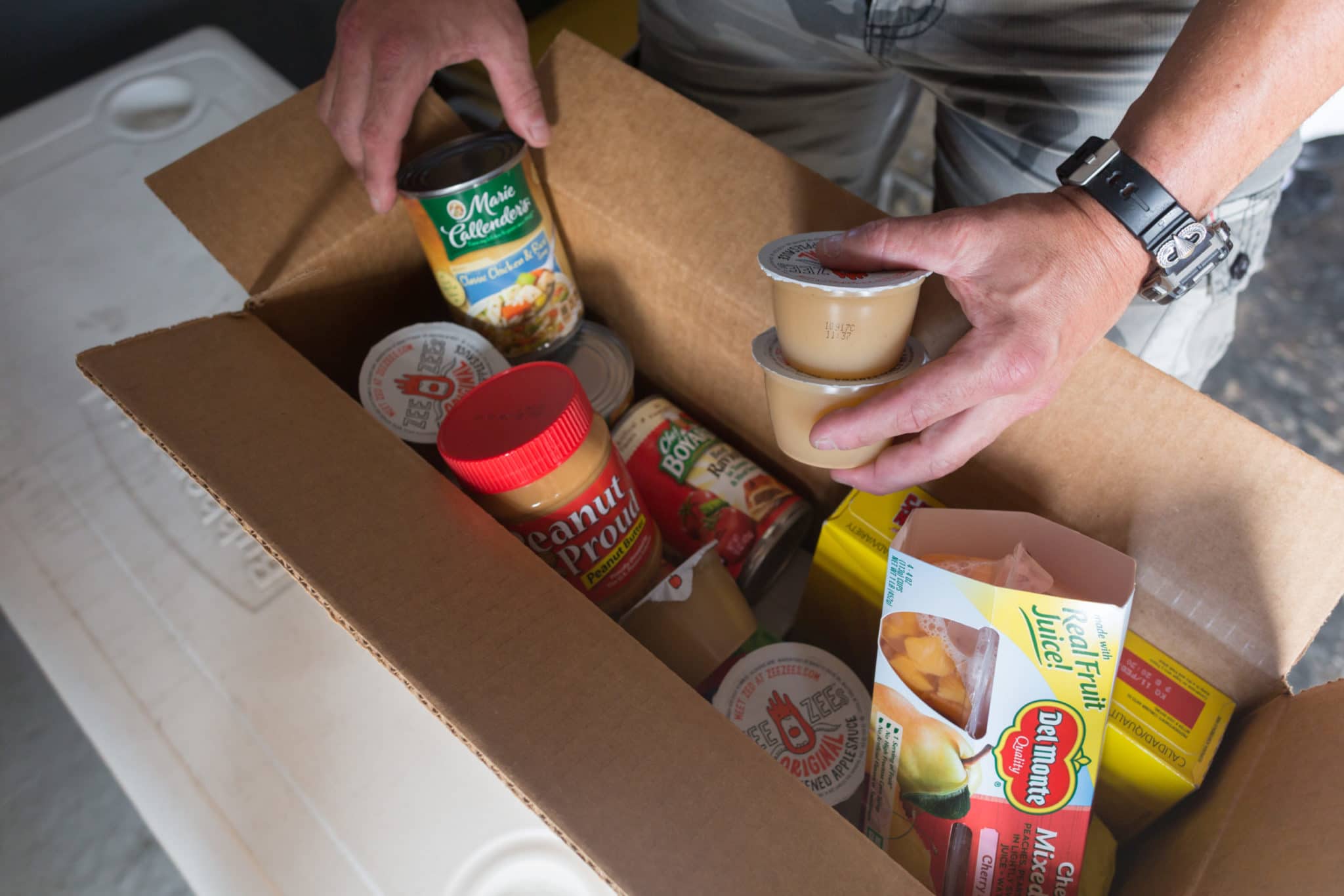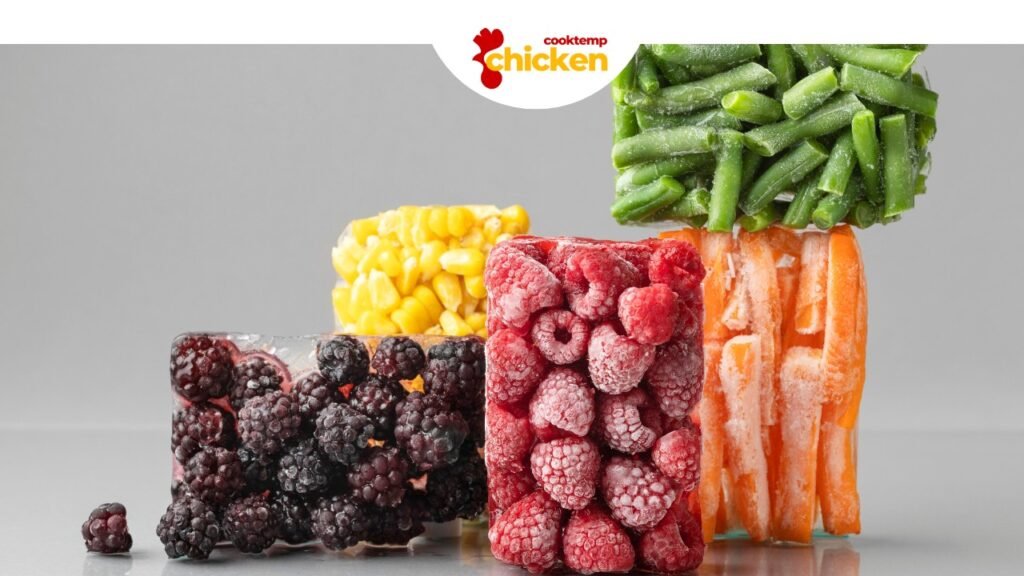Have you ever glanced into your freezer and wondered, “Where to donate frozen food near me”? Maybe you’ve found yourself with surplus frozen goods that you can’t use before they expire, or perhaps you’re simply looking to make a positive impact in your community. Whatever the reason, donating frozen food is a fantastic way to help those in need while reducing food waste. Let’s dive into everything you need to know about where to donate frozen food near me, ensuring your generosity reaches the right places efficiently and effectively.
Why Donate Frozen Food?
Before we explore the specifics, it’s essential to understand why donating frozen food is so impactful:
- Combating Hunger: Your surplus can provide nutritious meals to families struggling to make ends meet.
- Reducing Food Waste: Freezing preserves food, extending its shelf life and minimizing waste.
- Supporting Local Communities: Donations often go directly to local food banks and shelters, strengthening community bonds.
But how do you find the best places to donate? Let’s break it down.
Understanding the Donation Process
What Constitutes Donate-Worthy Frozen Food?
Not all frozen foods are created equal when it comes to donations. Here are some guidelines:
- Non-Perishable Items: Items like frozen vegetables, fruits, meats, and ready-to-eat meals.
- Unopened Packages: Ensure all products are sealed and within their expiration dates.
- No Damages: Avoid donating items with broken packaging or freezer burn.
Benefits of Donating Frozen Food
- Tax Deductions: Many organizations offer tax benefits for donations.
- Community Support: Directly aids local families and individuals in need.
- Environmental Impact: Less food waste means a smaller carbon footprint.
Where to Donate Frozen Food Near Me

Now, let’s get to the heart of the matter: where to donate frozen food near me. Here are some top options to consider:
1. Local Food Banks
Food banks are the most common recipients of frozen food donations. They distribute food to various shelters, pantries, and community centers.
- How to Donate: Contact your local food bank to inquire about their donation process.
- Benefits: Ensures your food reaches a wide network of people in need.
Popular Food Banks Across the U.S.
| Food Bank | Location | Contact Information |
|---|---|---|
| Feeding America | Nationwide | www.feedingamerica.org |
| Houston Food Bank | Houston, TX | (281) 872-5284 |
| LA Regional Food Bank | Los Angeles, CA | www.lafoodbank.org |
| Chicago Food Bank | Chicago, IL | (773) 247-4000 |
2. Shelters and Homeless Services
Shelters and homeless services often accept frozen food to provide hot meals to their residents.
- How to Donate: Reach out directly to shelters in your area to understand their needs.
- Benefits: Directly supports individuals experiencing homelessness.
3. Religious Organizations
Many churches, mosques, synagogues, and other religious organizations run food pantries or have connections to local families in need.
- How to Donate: Contact your local religious institutions to see if they accept frozen food donations.
- Benefits: Strengthens community ties and supports faith-based initiatives.
4. Community Centers
Community centers often have programs for low-income families, including food distribution.
- How to Donate: Get in touch with your nearest community center to learn about their donation policies.
- Benefits: Provides targeted support within specific neighborhoods.
5. Schools and Youth Programs
During summer breaks or in areas with high need, schools and youth programs might accept frozen food donations to support families.
- How to Donate: Contact local schools or after-school programs to see if they have food donation needs.
- Benefits: Supports children and families, ensuring kids have access to nutritious meals.
6. Emergency Relief Organizations
Organizations that respond to disasters or emergencies, like the Red Cross, might need frozen food donations during crisis times.
- How to Donate: Visit the websites of emergency relief organizations to find specific donation guidelines.
- Benefits: Helps during urgent times, providing immediate assistance to affected areas.
How to Find “Where to Donate Frozen Food Near Me”

Finding the right place to donate can be straightforward with these tips:
Online Search
Simply typing “where to donate frozen food near me” into your search engine can yield local options. Use specific terms like your city or neighborhood for more accurate results.
Use Donation Directories
Websites like DonorSearch or FoodPantries.org offer directories to locate donation centers in your area.
Check Social Media
Local community groups on platforms like Facebook often share donation drives and needs. Joining these groups can keep you informed about where to donate.
Contact Local Authorities
Municipal websites or local government offices can provide information on approved donation centers and ongoing programs.
Preparing Your Frozen Food for Donation
Proper preparation ensures your donations are useful and safe for recipients.
Sorting and Packaging
- Sort by Type: Group similar items together for easier distribution.
- Use Original Packaging: Keep products in their original, unopened packaging when possible.
- Use Freezer Bags or Containers: If repackaging is necessary, use airtight freezer bags or containers to prevent freezer burn.
Labeling
- Include Labels: Ensure all items have clear labels with expiration dates.
- Provide Descriptions: If items are unpackaged, include a list of contents.
Transporting
- Keep Frozen: Use coolers with ice packs to keep food frozen during transportation.
- Avoid Overloading: Distribute weight evenly to prevent damage to packaging.
Benefits of Donating Frozen Food

Donating frozen food isn’t just about giving; it offers numerous benefits:
For Donors
- Declutter Your Freezer: Free up space by donating unused items.
- Tax Benefits: Many donations are tax-deductible.
- Emotional Satisfaction: Knowing you’re helping others can boost your mood and sense of purpose.
For Recipients
- Nutritional Support: Provides access to healthy, preserved foods.
- Convenience: Frozen foods are easy to store and prepare, fitting into busy lifestyles.
- Variety: Offers a range of options, from vegetables to complete meals.
Challenges and How to Overcome Them
While donating frozen food is beneficial, there are challenges to consider:
Finding the Right Location
Not all organizations accept frozen food. Solution: Always call ahead or check online before making a donation.
Ensuring Food Safety
Frozen food must remain frozen until it’s distributed. Solution: Use insulated bags and minimize transit time.
Limited Storage at Donation Centers
Some centers might have limited freezer space. Solution: Coordinate with multiple centers or donate in smaller quantities regularly.
Frequently Asked Questions (FAQs)
How do I know if a place accepts frozen food donations?
Most donation centers list their accepted items on their websites. If unsure, give them a call to confirm.
Can I donate frozen desserts like ice cream?
Some centers may accept them, but it’s best to check as not all organizations can handle perishable desserts.
What if I have a large quantity of frozen food to donate?
Contact the donation center in advance to ensure they can accommodate large donations. They might need special arrangements for pickup.
Are there any restrictions on what I can donate?
Generally, donated food must be safe to eat, unopened, and within expiration dates. Specific centers may have additional guidelines.
How often can I donate frozen food?
There’s no set limit. Regular donations can significantly aid local efforts, but ensure you’re donating within your capacity.
Conclusion
Deciding where to donate frozen food near me is a commendable step towards making a positive impact in your community. By understanding the best places to donate, preparing your donations properly, and overcoming common challenges, you can ensure your generosity truly benefits those in need. Whether through local food banks, shelters, religious organizations, or emergency relief groups, your frozen food donations can provide essential support and nourishment.
So, next time you find yourself with excess frozen goods, remember the numerous ways you can give back and make a difference. After all, a little freezer space can lead to a lot of hope for someone else.


